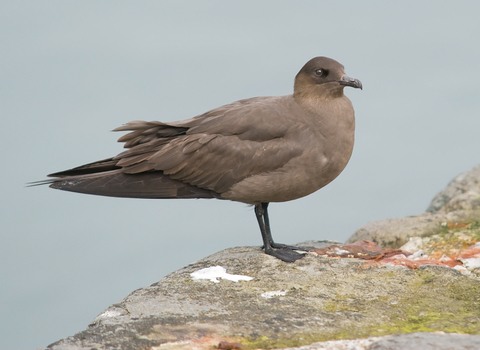
©Bob Coyle
Arctic skua
A fierce pirate of the sea, the Arctic skua is renowned for stealing fish from other seabirds and dive-bombing anyone that comes near its nests. It breeds in the far north of Scotland and on the Scottish Isles.
Scientific name
Stercorarius parasiticusWhen to see
April to SeptemberSpecies information
Category
Statistics
Length: 44-46cmWingspan: 110-125cm
Weight: 330-570g
Average lifespan: Up to 25 years
Classified in the UK as Red under the Birds of Conservation Concern 5: the Red List for Birds (2021). Priority Species under the UK Post-2010 Biodiversity Framework.
